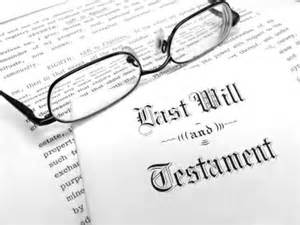 Serving as an executor can raise a lot of ethical dilemmas and tax concerns. Sometimes the best of intentions come at a cost.
Serving as an executor can raise a lot of ethical dilemmas and tax concerns. Sometimes the best of intentions come at a cost.
An interesting issue is raised in a post appearing on NJ 101.5, “Help for a disinherited loved one.” An executor wants to take the fee and give it to a grandchild who was left out of the will. It’s a lovely gesture, but what if the decedent made a deliberate decision not to give the grandchild anything? This would be going against the wishes of the deceased, which is not what the executor is supposed to do.
If the executor receives a commission, he or she must report the fee in his or her income tax, despite the fact the executor immediately gives the commission to a relative of the decedent who was omitted from the will. If that amount is over the annual gift exclusion amount, the executor would need to file a personal federal gift tax return. However, there would be no gift tax due unless the donor gifts more than the federal lifetime gift exclusion amount.
The exclusion amount is $5.45 million in 2016.
A preferable approach to the issue would be to avoid the tax question entirely. The executor could tell all of the beneficiaries under the will that he or she wants to waive the executor fee and have that amount go to the disinherited grandchild.
In this type of situation, it is recommended that the executor consult with an estate planning attorney to discuss both the ethical implications, the legal implications and the tax liability that may be created by this action. If the decision is made to go forward, a written agreement should be prepared to protect all parties.
Reference: NJ 101.5 (October 27, 2016) “Help for a disinherited loved one”
